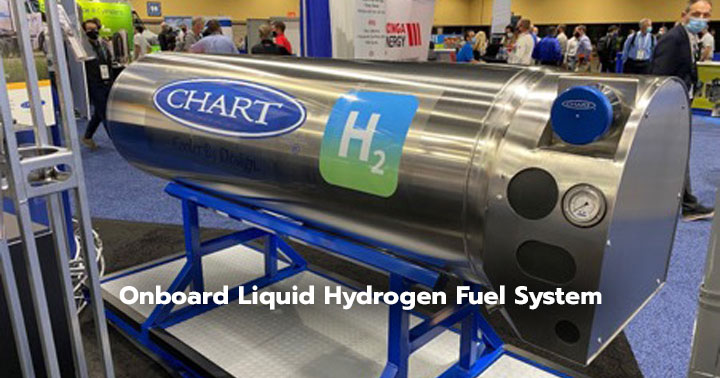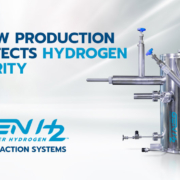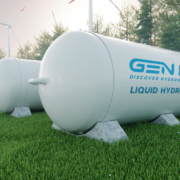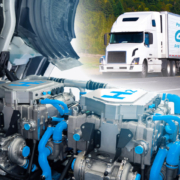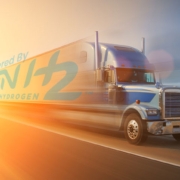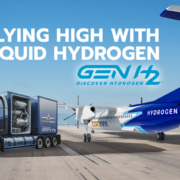Evolving Transportation with Hydrogen Onboard
By: GenH2 Staff
Read Time: 2 minutes
Hydrogen plays an important role in future energy systems for reducing greenhouse gas emissions and establishing a zero-carbon society. It is the energy carrier that can be liquefied, stored, and utilized efficiently in many uses across economic sectors, including transportation. In transportation applications, the liquid hydrogen (LH2) onboard approach stands out as a viable solution to reduce carbon emissions from trucks, buses, planes, and ships. For example, last month, the Le Mans race showcased the newest automotive technologies, with hydrogen being a key topic. During the event, automakers expressed excitement for hydrogen as a future fuel source, with an example being Toyota’s GR H2 racecar concept, powered by onboard LH2 with hybrid assist.
LH2, and specifically onboard LH2 is of specific interest due to its higher energy density and purity compared to its gaseous counterpart, along with the capability to significantly extend distances traveled and operations for longer timespans between refueling. The DOE investment goals are to also increase onboard hydrogen storage capacity and to reduce the cost of storage using technological advances in cryogenic storage. For hydrogen to remain in its cryogenic liquid state and also onboard, innovations have to continue to be carried out in exchange for its increased efficiency as a fuel.
Innovations in onboard cryogenic storage tanks, hydrogen fuel cells, and supporting infrastructure are being made as seen in collaborative efforts by such aircraft companies like Airbus, ZeroAvia, and H2Fly. Other cryogenic product manufacturing companies like Chart Industries have developed onboard storage tanks for long-haul vehicles. Other technologies being studied for future use include composite tank technologies, other solid-state LH2 storage systems, and interface systems. The continued development of onboard LH2 technologies, along with its increasing applications across the transportation industry including marine, indicates a growing trend toward the adoption of on-board LH2 to fuel future vehicles and keep zero-emission transportation pathways moving forward. Transitioning vehicles to onboard LH2 will allow for more efficient energy allocation while providing a cleaner and more sustainable future.
In continuing to meet these current and emerging needs for on-demand and onboard LH2 storage and transfer, GenH2’s mission is to create solutions for the LH2 value chain, focusing on light-scale liquefaction, storage, and transfer. These modular, scalable systems can accelerate widescale infrastructure rollout that will assist in the application and continued development of onboard LH2 systems. To learn more about how GenH2 revolutionizes hydrogen solutions to support clean energy, see our press release featuring the small-scale LS20 Mobile Liquid Hydrogen System!
